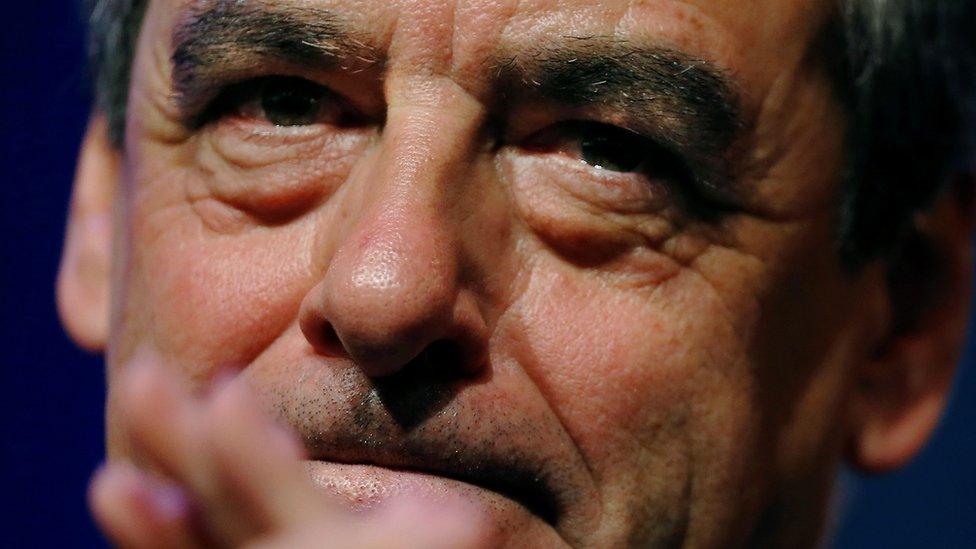France votes for new president amid high security
- Published
Up to 30 % of voters were still reported to be undecided beforehand
Voters are going to the polls in France to choose their next president, amid high security following a deadly attack on Paris police three days ago.
About 50,000 police and 7,000 soldiers have been deployed across the country to secure polling.
Eleven candidates are vying to be the next president, with candidates spanning the political spectrum.
If, as expected, no-one wins 50%, the two with the most votes will go to a run-off round in a fortnight's time.
Polling stations in France opened at 08:00 local time (06:00 GMT), although some overseas territories began the voting on Saturday.
Most polling stations close at 19:00, with some stations in major cities able to remain open for another hour. Projected results are expected quickly afterwards.
Live coverage of the French election
Turnout by 15:00 GMT was 69.42% - slightly lower than the corresponding 2012.
Four candidates are seen as being within reach of the presidency: the conservative François Fillon, the far-right leader Marine Le Pen, liberal centrist Emmanuel Macron and the far-left's Jean-Luc Mélenchon.
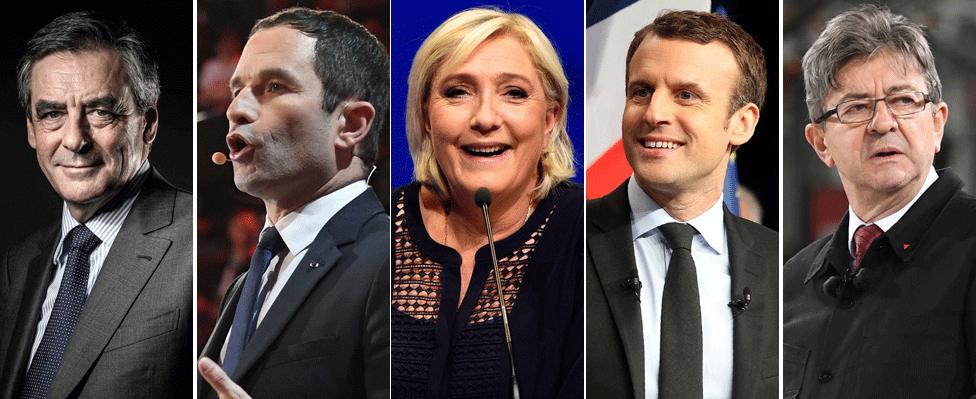
The best-known candidates (L-R): François Fillon, Benoît Hamon, Marine Le Pen, Emmanuel Macron and Jean-Luc Mélenchon
The candidates have created plenty of debate in the country, all offering dramatically different visions of Europe, immigration, the economy and French identity.
Extra security measures are in place on polling day after Karim Cheurfi, a convicted criminal, shot a police officer in the head on the Champs Elysees in Paris.
Cheurfi was killed by security forces and a note defending the so-called Islamic State group was found near his body.
The election is taking place under a state of emergency, which was imposed following the attacks in Paris in November 2015.
The top two from Sunday's vote will go through to the second round in May.
Security was one of the main talking points during the campaign, but candidates have been accused of exploiting the most recent attack for political gains.
The race between the leading contenders is considered too close to call.
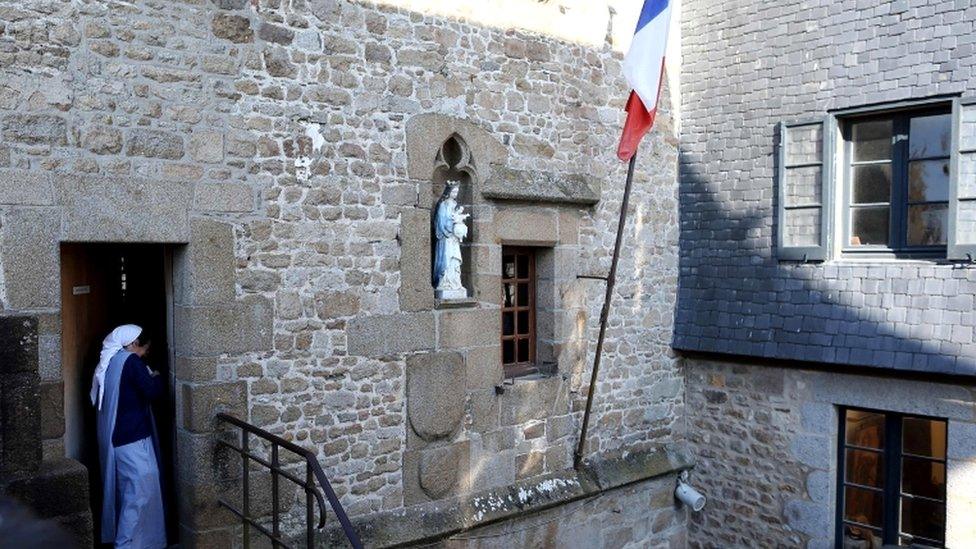
A nun of the Monastic of the Fraternities of Jerusalem leaves a polling station in Le Mont-Saint-Michel
However, no candidate is expected to get the 50% of votes required for an outright win.
A second round between the top two will be held on 7 May.
Mr Fillon is the only one among the leading contenders from an established party of government.
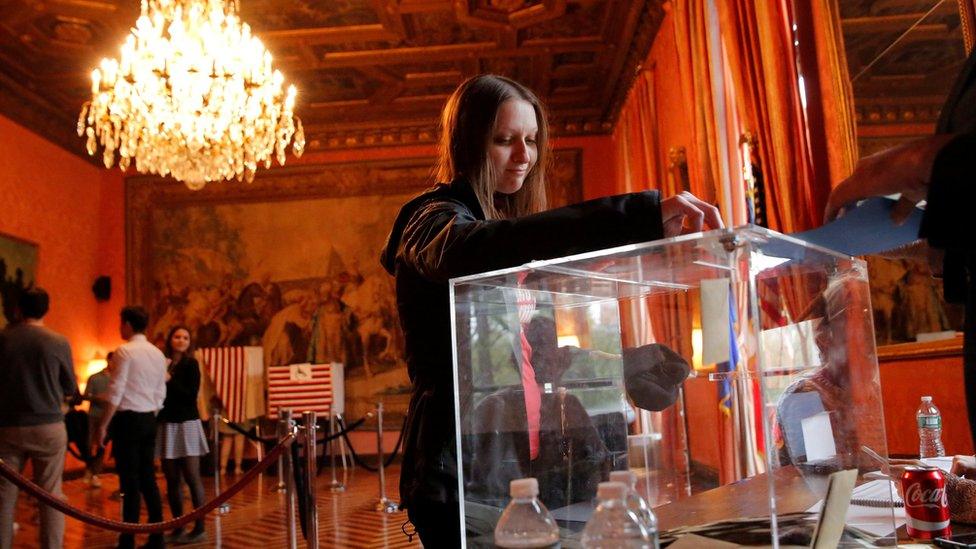
Some overseas voters - including this woman at the French consulate in New York - have already cast their ballots
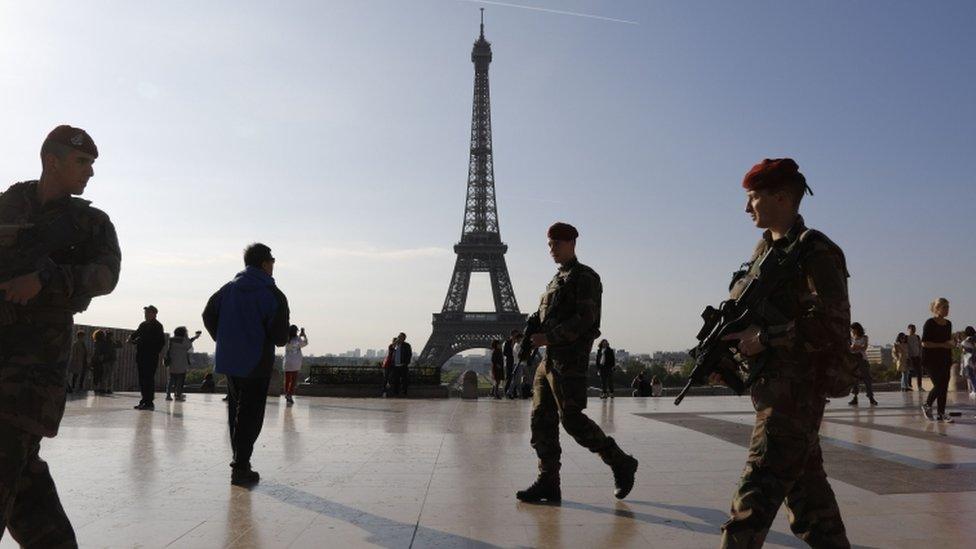
Thousands of soldiers are joining tens of thousands of police on duty
Benoît Hamon, the Socialist candidate from the same party as the current president, is largely seen to be out of the running.
The unpopular President François Hollande is not seeking a second term, and is the first French president in modern history not to do so.
- Published24 April 2017
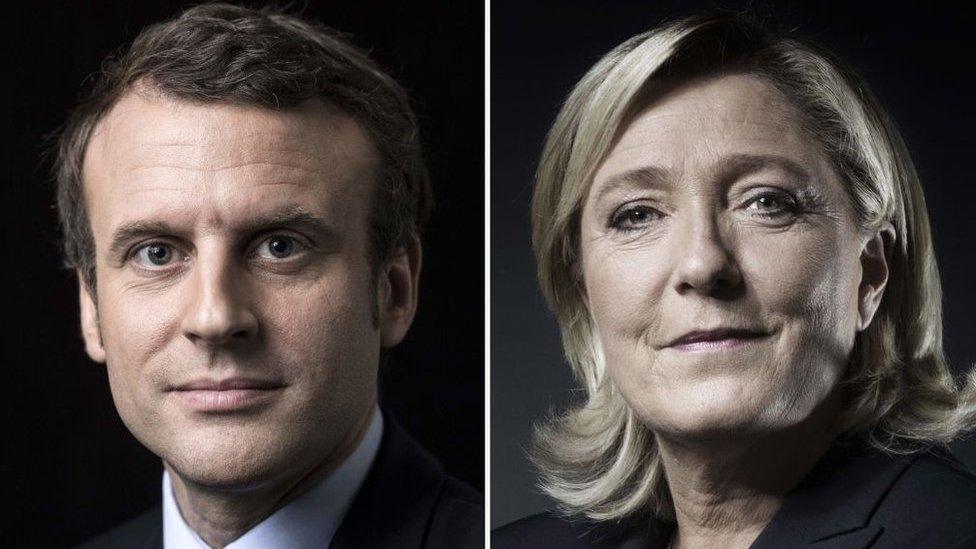
- Published3 May 2017
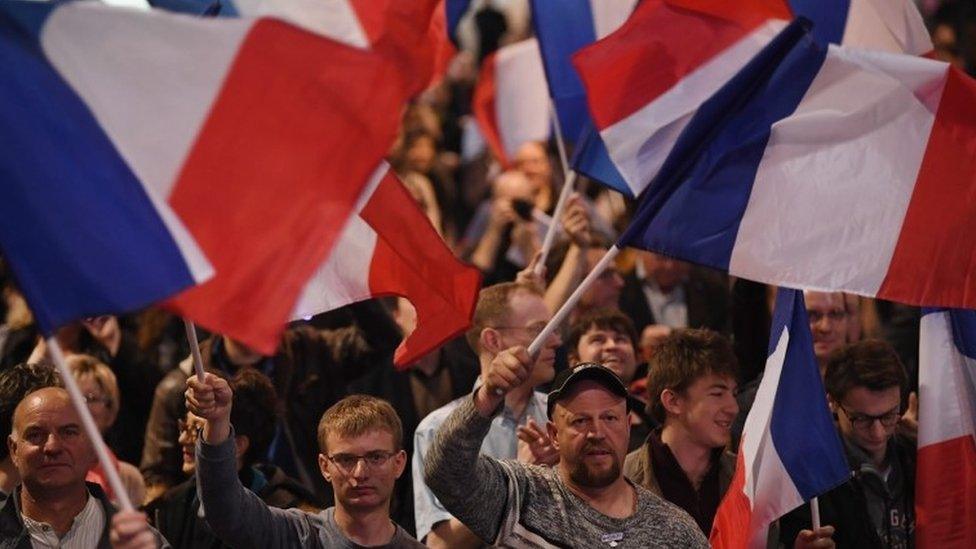
- Published3 May 2017
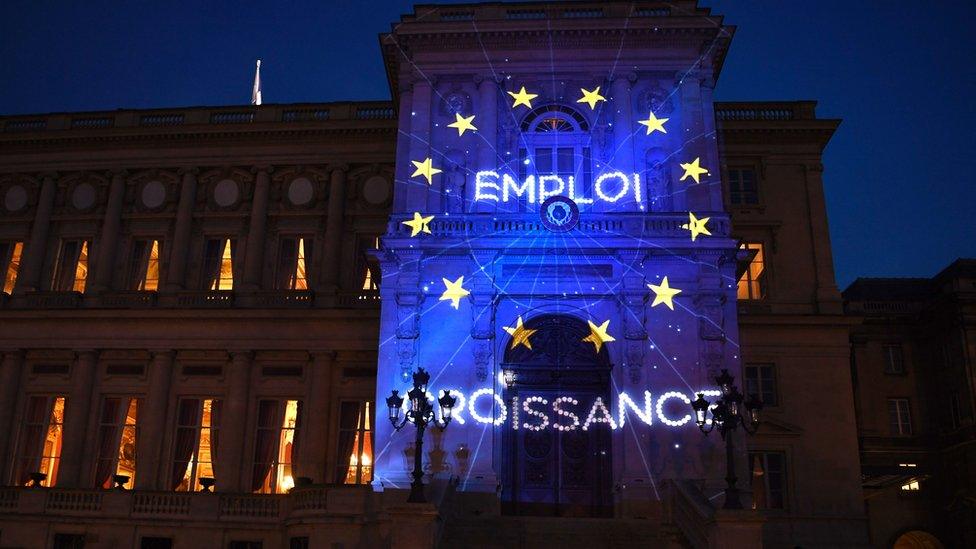
- Published18 April 2017
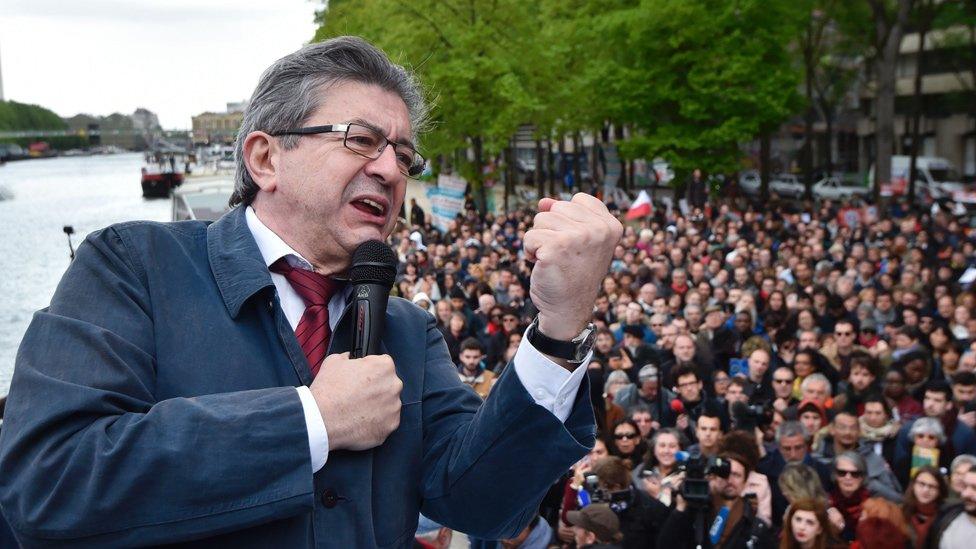
- Published28 March 2017
